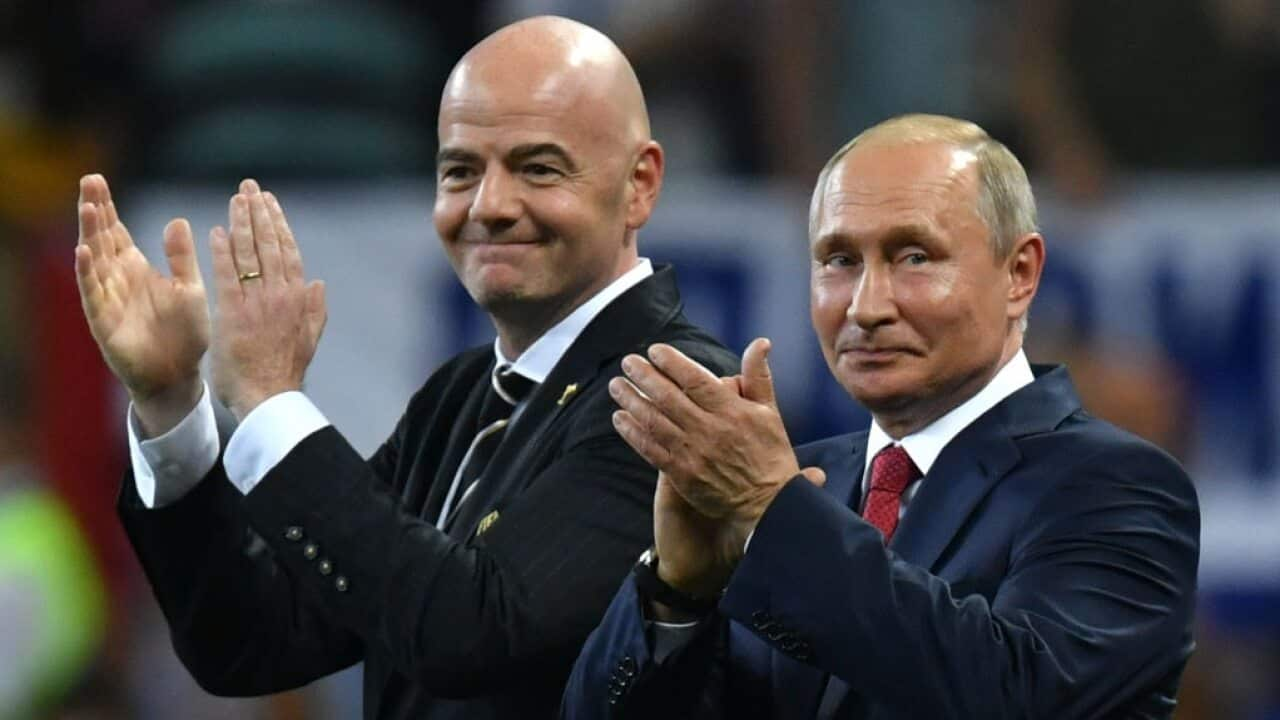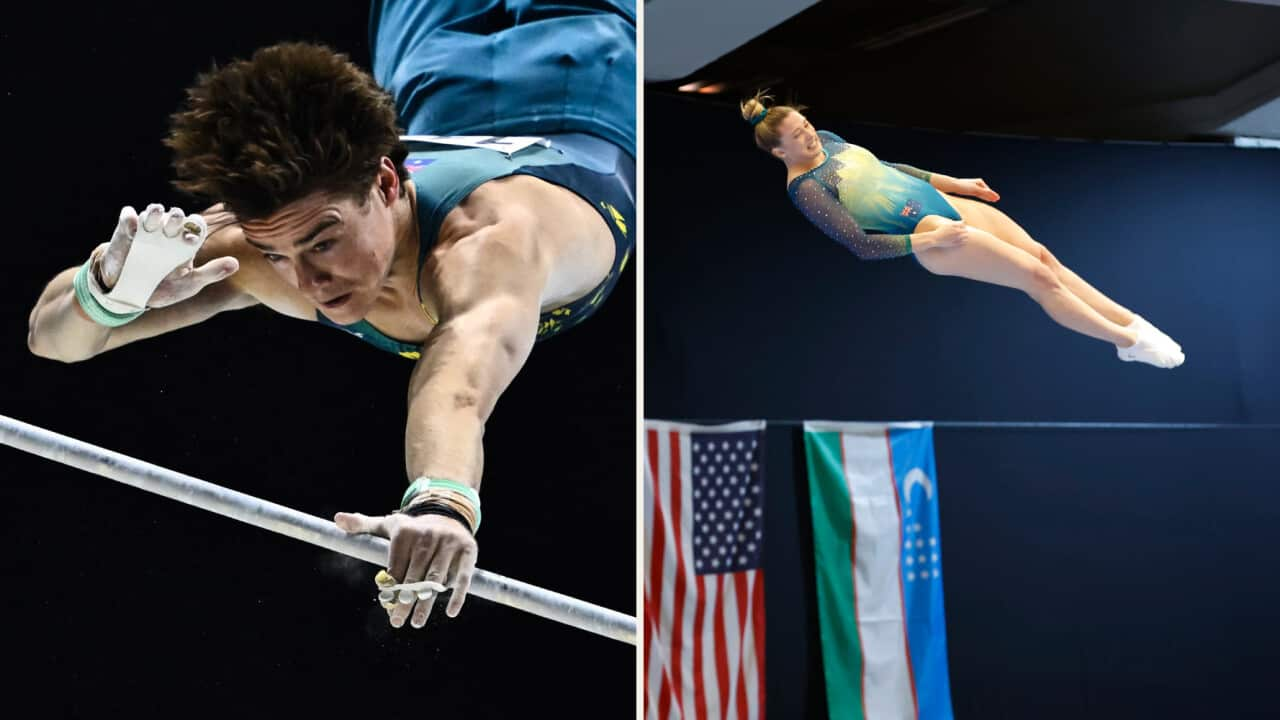Across Moscow, vestiges of the World Cup linger.
Normality may have returned to the resplendent Red Square and leafy Gorky Park, but hints remain to remind locals that the tournament – which wrapped up nine weeks ago – was more than just a surreal dream.
Above the baggage carousel at Domodedovo Airport stands a defiant FIFA billboard, one of the few items of World Cup advertising to withstand the city’s post-tournament rebrand.
Throughout Moscow’s labyrinthine underground transport system, World Cup-branded backpacks, t-shirts and jumpers are a common sight – while the metro map still identifies the location of the FIFA fan site.
At RZD Arena on a Friday evening, as Lokomotiv Moscow host Dynamo Moscow in a local derby, the 5,000 additional fans – compared to last year’s fixture – provide a visible representation of the World Cup’s legacy.
Russian Premier League clubs are trying their best to harness this momentum.
An hour before kick-off, local rapper Noize MC is offering entertainment outside the stadium. Inside, the carnival atmosphere continues with singers and dancers.
Two months on from the World Cup, some elements of the match-day experience have certainly changed: absent pressure from FIFA sponsor Budweiser, alcoholic beer is no longer on sale.
But some things remain unchanged, including the dulcet tones of AC/DC blasting all night long.
‘Highway to Hell’ is the DJ’s preferred tune, although given Lokomotiv were established by a railway collective and remain sponsored by the national railway company, ‘Rock N Roll Train’ would seem the more appropriate choice.
“We have been going to the football here for 12 years and we have never seen so many people,” Olga, a middle-aged Muscovite, tells me over the blaring music.
She is in attendance with her adult son, Dimitry, who lauds the inspiration that the World Cup provided for active supporters.
As if to prove his point, the home-end – the Zheleznodorozhniki (Railroaders) – do not stop signing, even after conceding in the fourth minute.
An equaliser near half-time provides more energy, and a drab second-half tussle fails to quieten them.
This increase in match attendances has been borne out across the country.
In the Russian Premier League, average attendance after six rounds of the new season is up almost 6,000, while in the second division average crowd sizes have doubled.
Even away from the big cities of Moscow or Kazan, World Cup fever is still burning.
In Saransk there were pre-tournament concerns about the newly-built 44,442 capacity Mordovia Arena becoming a white elephant, with a local population of just 300,000 and a team in the second division.
Early season attendances of upwards of 25,000 have surpassed all expectations.
At the RZD Arena in Moscow, national team striker Fyodor Smolov – who played 219 minutes during the World Cup – receives a hero’s welcome when he is substituted on after half-time.
A sign in the crowd reminds the often forlorn-looking Smolov: ‘Don’t worry, be happy.’
With the Russian Premier League riding high on a post-World Cup wave, Smolov and his colleagues have reason to smile.
The following day, at nearby café Surf Coffee the locals are also taking that instruction to heart.
With a wooden aesthetic, serious attention to single-origin beans and a vibrant crowd, the coffee shop would not have been out of place in east London or Brooklyn.
This, in many ways, is the grand paradox of a visit to modern-day Moscow – a contradiction exacerbated by the World Cup.
The city is a fun urban hub with art collectives, craft beer breweries and a lively restaurant scene.
But it is also the power centre of an increasingly authoritarian government, where civil liberties are “tightly circumscribed” (according to Freedom House, an independent watchdog organization dedicated to the expansion of freedom and democracy) and there is little genuine opposition.
With his re-election earlier this year, President Vladimir Putin will become the longest serving leader in the Kremlin since Joseph Stalin. The only real competitor to Putin, Alexei Navalny, was barred from the election over a dubious prior conviction.
The only real competitor to Putin, Alexei Navalny, was barred from the election over a dubious prior conviction.

Independent media is limited, opposition figures are regularly subject to violence (or worse) and minority groups endure systemic discrimination.
This political reality seems a world away from the hipster vibe in Surf Coffee, or the stands of the Luzhniki Stadium during one of the best World Cups in recent memory.
But for many Muscovites, the dissonance is very real.
“We try our best to feel free but it is hard,” one young local, Daria, explains. “Everyone wants to leave. Things will change but it will take time.”
It is hard to know whether the World Cup has made the political climate better or worse.
On one hand, the successful tournament was a major propaganda coup for the Russian state and burnished Putin’s image.
On the other, it opened up 11 Russian cities to the world and encouraged unprecedented interaction between locals and visiting foreigners.
The extension of visa-free travel in Russia until the end of the year for those possessing a Fan ID continues this trend.
“While the 2014 Olympics in Sochi were a demonstration of state power, the World Cup was a triumph for the people,” offers Anton, a Moscow artist.
“We had engagement between Russians and the world on a massive scale – that can only be a positive thing.”
In many parts of Russia, the halo effect did not last long.
Protests over a proposed increase to the pension age, introduced to parliament on the opening day of the World Cup, have sparked political upheaval that even Putin’s direct intervention has failed to quell.
It will be months, or even years, until the lasting legacy of the World Cup can be accurately assessed.
Whether increased domestic attendances become the new norm, or quickly dissipate, remains to be seen.
The World Cup’s potential to serve as a bridge in improving Russia-West relations is also uncertain, liable to be derailed by the actions of Putin or President Donald Trump on either side of the Pacific.
Departing Moscow for the second time in recent months, I was greeted by a FIFA vending machine at the top of the escalators at Domodedovo Airport.
Rows of dolls of the tournament mascot Zabivaka smiled back at me.
At the very least, the World Cup has left a few souvenirs behind – on and off the pitch.











